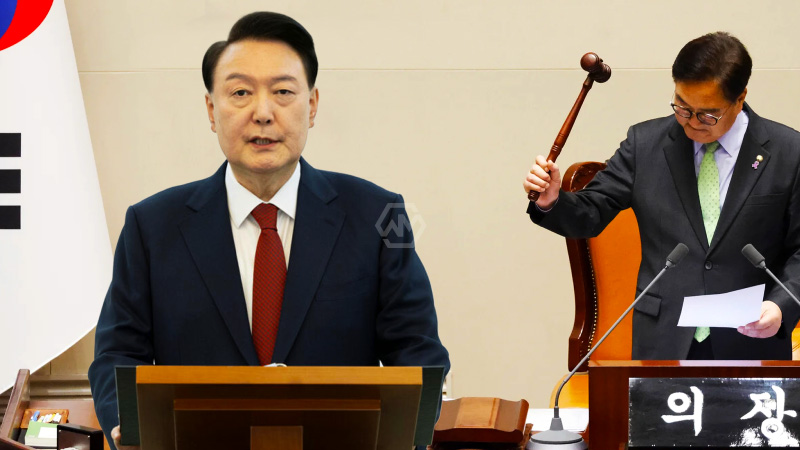- Impeached President Yoon Suk Yeol indicted on rebellion charges over his martial law declaration.
- Martial law lasted six hours but caused significant political and economic disruption.
- Yoon denies wrongdoing, calling the decree a necessary governance act against opposition forces.
The indictment of South Korean President Yoon Suk Yeol on rebellion charges has deepened the country’s political crisis. This historic case stems from Yoon’s declaration of martial law on December 3, which he claimed was necessary to counteract the liberal-controlled National Assembly.
Investigations revealed Yoon’s use of military force to obstruct lawmakers, an act prosecutors say undermined the constitution. His defense team insists the declaration was lawful and intended to restore order.
South Korea’s Democracy Tested: President Yoon Faces Rebellion Charges
President Yoon Suk Yeol’s indictment marks a watershed moment in South Korea’s democratic journey, raising questions about the misuse of emergency powers. His martial law decree, albeit brief, shocked the nation, disrupting political institutions and shaking public trust in the presidency.
The declaration mobilized troops and police, blocking lawmakers from the National Assembly. Though the assembly swiftly overturned it, Yoon’s actions drew parallels with South Korea’s authoritarian past, intensifying calls for accountability. Protesters, both supportive and critical of Yoon, continue to flood Seoul’s streets, showcasing the nation’s growing divide.
Legal experts argue that Yoon’s defense—claiming martial law was a legitimate response to obstruction—faces an uphill battle. The rebellion charges, which bypass presidential immunity, could lead to life imprisonment or even the death penalty, adding immense weight to the trial.
Beyond domestic consequences, this case has rattled South Korea’s global standing. Investors and allies are watching closely, concerned about the stability of one of Asia’s leading democracies. The resolution of this crisis will shape the country’s political future and international reputation.
The indictment of President Yoon Suk Yeol for rebellion underscores the fragility of democratic norms under duress. South Korea’s handling of this crisis will define its commitment to upholding the rule of law in challenging times.
“Power tends to corrupt, and absolute power corrupts absolutely.” – Lord Acton



